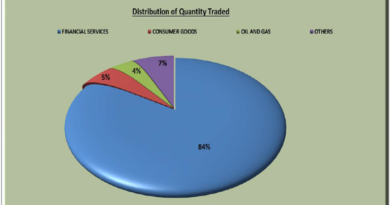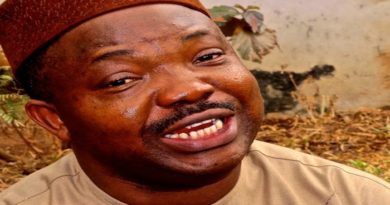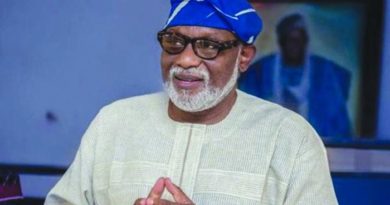Presidential System not working’, Reps member pushes for Parliamentary Democracy
A member of the House of Representatives, Abdusamad Dasuki, has said the current presidential democracy being practised in Nigeria is not working, and should be abandoned for a return to the parliamentary system of government operational in the country during the First Republic.
The federal lawmaker representing Kebbe/Tambuwal Federal Constituency in Sokoto State, stated this on Inside Sources with Laolu Akande, a socio-political programme aired on Channels Television on Friday.
According to him, Nigeria is in a “state of quagmire” and “like a house with a faulty foundation”, as the current system has not been able to deliver representative democracy where members of the executive arm of government, beginning with the President, are fully accountable to the people of Nigerians.
Dasuki said, “Things are not working in Nigeria, we can’t deny that fact. This (the move for parliamentary system) is not something that started with this Assembly, some of us that were in the 8th Assembly believed that there was something that was fundamentally wrong with the system.
“The system is faulty. Some will say it is the Nigerian factor, the Nigerian people and all that, but the system itself gives you so much power and power corrupts absolutely.
“Our founding fathers had the foresight to believe that Nigeria is a plural state, and everything must be pluralistic. Let’s have a situation where even if it is the elite coming together to come up with what works for us.”
Mid-February, talks of parliamentary democracy resurrected in Nigeria when a group of 60 lawmakers in the House of Representatives sought amendments to the 1999 Constitution to transition from the current presidential system to the parliamentary system of government.
The lawmakers said the transition has become necessary to reduce the cost of government in the face of dwindling revenue.
Titled, ‘The Bills Proposing Constitutional Alterations For a Transition To Parliamentary System of Government,’ the bill was sponsored by the House Minority Leader, Kingsley Chinda, and 59 others. The bill was read on the floor of the House during plenary in Abuja but has not progressed since the first reading about four months ago.
Many prominent Nigerians have since joined the call for a transition to the parliamentary system of government.
Dasuki, one of the lawmakers supporting the bill in the green chamber, said, “In our draft proposal, which is not cast in stone, we want a homegrown parliamentary system, not one copied from somewhere else.”
“For me and my colleagues, what we are proposing is that among the elected representatives (in the parliament), we have the Prime Minister and the ministers.”
He imagined a parliament where President Bola Tinubu is the Prime Minister, Atiku Abubakar of the Peoples Democratic Party (PDP) is the head of the opposition, and Peter Obi of the Labour Party (LP) is a member of the parliament as well.
Dasuki said such a parliament won’t breed unaccountable, inefficient and corrupt cabinet members as they could be recalled by elected representatives in the parliament anytime the people feel they aren’t giving their best.
Dasuki said, “We want a leader where every single day, you are on top of the situation; you are able to relate with citizens. A leader should be able to communicate and say what’s going on.”
The lawmaker said he and his colleagues in the lower chamber are proposing that the parliamentary system start with the local government election in Nigeria in 2027. He opined that the local government polls should be regularised with the general elections.
He said, “The ward councilors should elect their local government chairmen among themselves. If a chairman is not leading right, he is taken back and the councillors elect another chairman. That is the proposal. There shouldn’t be an election for local government chairmen in 2027, the same as for governors and the President. The elected representatives should elect from among themselves.”
Dasuki said after the initial reading of the bill in the green chamber, the proponents of parliamentary democracy decided to be strategic about the second reading. He said lawmakers have been visiting those who witnessed the First Republic to seek their support and advice. He said elder statesmen like Ango Abdullahi, Edwin Clark, Segun Osoba, Bisi Akande, and others have been consulted and they approved of parliamentary democracy




